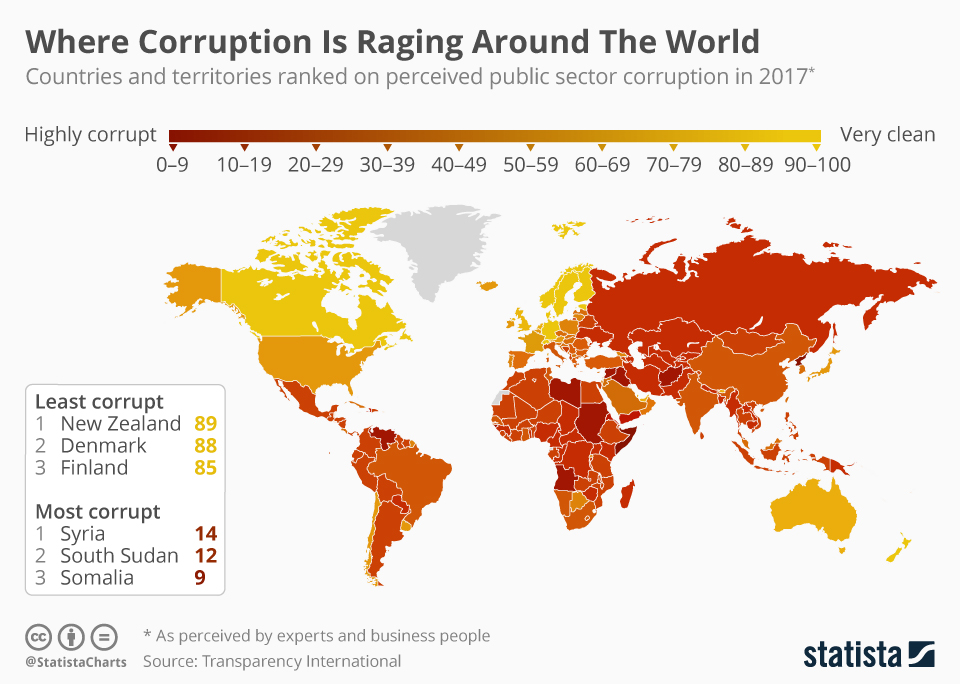

One in five people in Africa has paid bribes to access medical services or to obtain documentation. Widespread corruption creates a culture of impunity, meaning that officials consider themselves above the law. Without a culture of accountability, there can be no progress in human rights.
AS ABOVE, SO BELOW
A culture of impunity has an impact on people as much as institutions. In Zimbabwe, justice was denied to a nine-year-old victim of rape. The perpetrator, twice arrested, was released twice by bribing police officials. Higher level officials prefer to turn a blind eye or take a cut of the money than to investigate further. Having been infected with HIV, the girl’s life is in danger, and it is unlikely that justice will be achieved.
Accountability is more than making sure police officers and low-level civil servants do not take bribes. The Kenyan government is being pressured by the human rights commission to take action after several people have been killed by police and military. Summary executions and enforced disappearances make the government feel like they are above the law. This undermines equality. Police officers know they can get away with atrocities because their superiors will not try to investigate or punish them. When high-level officials don’t promote accountability, the attitude trickles down, and destroy people’s lives.
BASIC NEEDS
Access to justice is not the only concern for promoting accountability. Sometimes a culture of impunity can block access to basic resources such as water. In the KwaZulu-Natal region of South Africa, the installation of a water system was troubled with issues. Unfinished work and poor infrastructure installed by government contractors endangered the health of the local population. According to the South African Human Rights Commission, the sanitation crisis was provoked by systemic failures in government planning and budgeting.
Just like water – a culture of accountability is essential. Without it, everything from the police forces, to courts, to basic infrastructure will, making protecting equality, dignity and justice impossible.
CHANGE IN SIGHT
Faced with the challenges of corruption, some African governments have found a way to tackle the issue effectively. Botswana and Mauritius have been exceptionally effective at maintaining strong institutions and low levels of corruption (around 1%). Whereas some countries, like Ghana and Malawi, have struggled with efficient anti-corruption measures, Senegal’s National Office for the Fight Against Fraud and Corruption has had some success. A law requiring officials to be open about their finances has made institutions more transparent and has fostered the beginnings of a culture of accountability. Transparency International, an organization dedicated to combating corruption has made Africa its priority. Countries will receive extensive guidance in the future about what efforts to fight corruption are most effective.
By: DANIIL UKHORSKIY
more recommended stories
 A Celebration, a Surprise, and a Strategic Masterstroke: How Somaliland’s Irro Quietly Redirected Lasanod’s Political Hopes
A Celebration, a Surprise, and a Strategic Masterstroke: How Somaliland’s Irro Quietly Redirected Lasanod’s Political HopesBy Mohammed Yasin Omar LASANOD, SOMALILAND.
 The Imminent Collapse of SSC-Khaatumo: A Militia Administration at the Brink of Extinction
The Imminent Collapse of SSC-Khaatumo: A Militia Administration at the Brink of ExtinctionSSC-Khaatumo, the eastern Sool region administration,.
 Somaliland’s Statehood: Rooted in History, Built on Stability – Presidential Spokesperson
Somaliland’s Statehood: Rooted in History, Built on Stability – Presidential SpokespersonHargeisa (Somaliland.com):- The Spokesperson of the.
 President Irro’s Landmark Visit to UAE: A Diplomatic and Economic Win for Somaliland. Dubai, UAE – Somaliland’s Diplomatic Breakthrough
President Irro’s Landmark Visit to UAE: A Diplomatic and Economic Win for Somaliland. Dubai, UAE – Somaliland’s Diplomatic BreakthroughBy: Abdi Jama President Dr. Abdirahman.


Leave a Comment